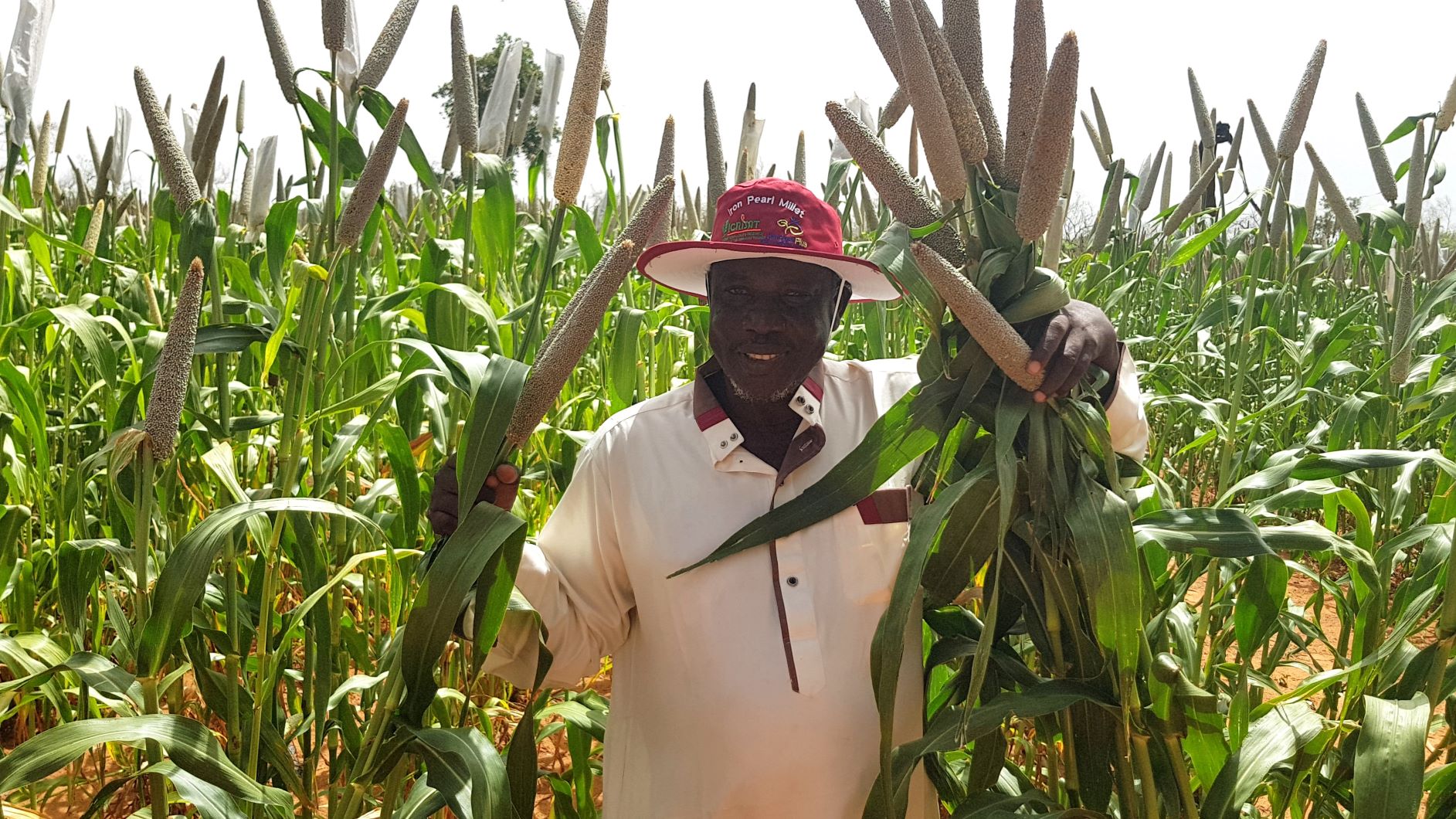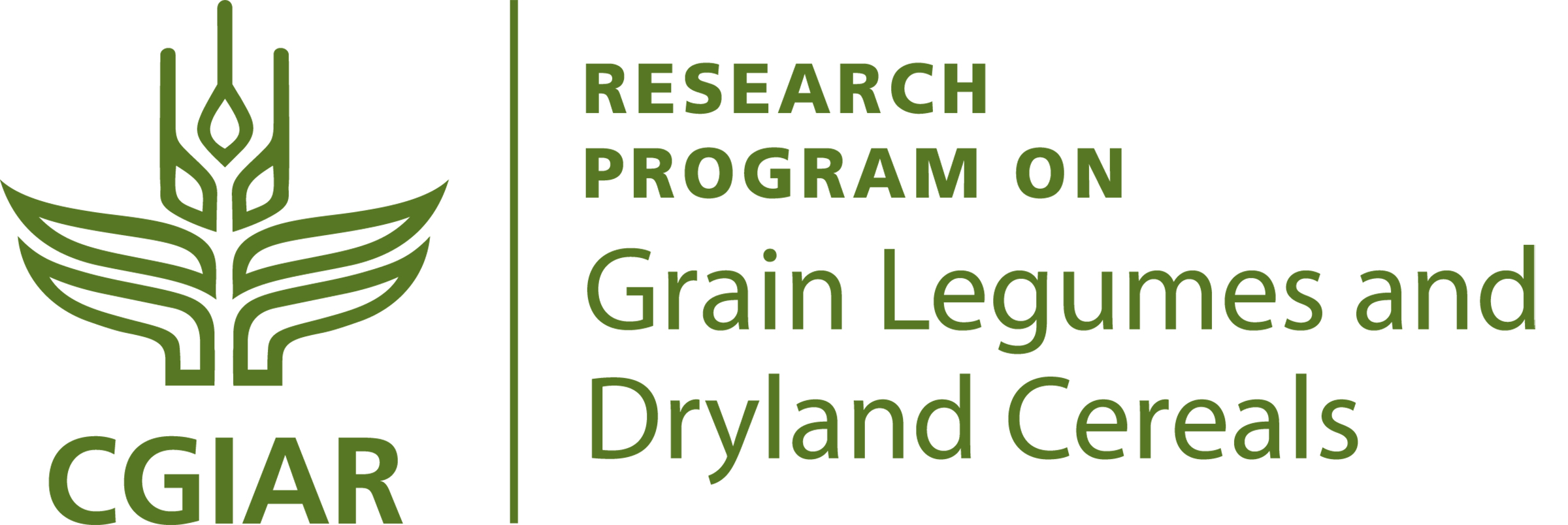About this Course
GLDC has made ambitious impact commitments in its design and work plan. These are framed by the sustainable development goals (SDGs) and more explicitly by alignment to the CGIAR’s Strategy and Results Framework which emphasizes three top level goals, known as System Level Outcomes (SLOs): i) Reduce poverty; ii) Improve food and nutrition security; iii) Improve natural resources and ecosystem services.
To advance these outcomes it is critically important to plan, organize and implement research and related activities in such a way that it delivers impact.
This e-leaning course is designed as a series of practical modules that guide teams through a process to develop Theories of Change for new project proposals or implementation plans for existing projects, with a focus on impact. It will inspire GLDC researchers and collaborators to develop new ideas about how their activities can be designed for impact at large scale. It also builds on our collective concern and commitment to support sustainable development. It acknowledges the diverse and innovative contributions of all GLDC partners. And from these starting points we want to equip teams with tools and perspectives to plan and implement your work in even more impactful ways.
Purpose of the course
· Research by GLDC with its CGIAR and other partners develops diverse technological and social innovations with the intention to transform agri-food systems at scale;
·However, to achieve this it is necessary to plan, organize and implement research and related activities in such a way that research delivers impact and is scaled.
There are now a number of tools and approaches that are available to help manage for impact.
This e-leaning course, will help equip GLDC researchers and their partners with the told and perspectives needed to plan and implement research in impactful ways.
Rationale:
GLDC has made impact commitments in its design and work plan. These are framed by the sustainable development goals (SDGs) and more explicitly by alignment of impact ambitions to the CGIAR’s Strategy and Results Framework which emphasizes three top level goals, known as System Level Outcomes (SLOs): i) Reduce poverty; ii) Improve food and nutrition security; iii) Improve natural resources and ecosystem services.
While these impact ambitions are clearly articulated at the level of GLDC, the delivery of impact needs to be operationalized at the level of activity clusters and window 3 funded projects. These then roll up into the higher level program deliverables. A key capacity building activity is therefore to ensure that these activities and projects are planned in such a way that impact and scaling are adequately addressed.
What will this course offer participants?
The course will equip scientists with tools and perspectives to plan and implement for impact, ultimately boosting GLDC’s impacts and achieving system level outcomes. Specifically:
It will help in the articulation and testing of impact logic and critical assumptions particularly for complex impact domains related to agri-food system change
It will help identify and design supporting interventions and the selection of partners to help in impact delivery and scaling;
It will help better assess partners’ capacities and drivers and any required policy changes that might be needed to enable impact and scaling;
It will navigate gender issues that need to be considered in impact planning and implementation
It will improving the design of funding proposals, by making impact logic transparent and plausible.
Participants, approach and delivery method
The course is aimed at GLDC researchers and their partners. Ideally, the first round of the course would like to target 5 teams of 4 to 5 members who would bring a specific on-going activity or new project proposal. The course will use expert modules and exercises to guide the teams through the development of an impact plan for the activity and project proposal that they will bring with them. Prior to the starting the course, each team will need to provide the course conveners with a brief description of the activity or project proposal that they will work on. Assistance of Flagship leaders will be sought to help identify project teams would be a real world example for the teams to work through. The delivery method will be in an e-learning format with 6 modules followed by an interactive virtual workshop with each individual team. Domain experts will deliver each module which will include a presentation, resource materials and an exercise that helps the teams put into practice the tools and perspectives in each module. Domain experts will provide each team feedback and mentoring for each exercise.

This work was undertaken as part of,
and funded by the CGIAR Research Program on Grain Legumes and Dryland Cereals
(GLDC) and supported by CGIAR Fund
Donors
https://www.cgiar.org/funders/
About CRP-GLDC About the CGIAR.
Background
In many parts of the world, land has become an increasingly scarce resource (ELD Initiative 2015). There are more and more demands on land to produce a diverse range of products such as timber and fuel, but in particular food for an expanding population. Land also provides a range of services including water purification and carbon storage. As a result of all these different demands, the competition between land users and land uses increases. Not only is the quantity of land available for production under current technical and economic conditions limited, but there is evidence that its quality is degrading through, for example, farming practices that result in water and wind erosion, the loss of organic matter, topsoil compaction, salinization, soil pollution or nutrient loss (FAO 2011). Common ways to address these challenges include intensifying current land use, expanding into marginal lands or boosting production through structural reforms. In many places, the way land has been managed over the past 30 years has not slowed the pace of land degradation, let alone reversed it (ELD Initiative 2015). All these dynamics underline the urgent need to manage the available land more sustainably in both the medium and longer term.
The Global Programme „Soil protection and rehabilitation for food security“ which is implemented by GIZ on behalf of the German Federal Ministry for Economic Cooperation and Development, works with partners who identified the need for sharing and implementing sustainable approaches for soil protection and rehabilitation in six countries (Benin, Burkina Faso, Ethiopia, India, Kenya and Madagascar). At the political level, the programme advises the partner governments on improving general political conditions. The governments have to create incentives for farmers and smaller enterprises to use the soil in more sustainable ways. To support these national activities, the programme organizes international forums that encourage participants to share lessons learned.
The Land Matters! Integrating soil degradation concerns and solutions into policy processes Massive Open Online Course (MOOC) is contributing to the aforementioned Global Programme. Many academics and practitioners struggle to support decision making which takes into account land use related trade-offs in ecosystem service provision, even though many have evidence of such trade-offs. The MOOC therefore helps them in finding ways to support decision-making. It is hosted on the GIZ online platform, Global Campus 21, and includes the following features:
- Pre-recorded video lectures by experts from around the world;
- Introductory webinar (to provide a broad overview and create a sense of community);
- Forum, news feed and support options through which participants can discuss key MOOC topics, exchange views with experts and other participants, receive information and ask questions;
- A collection of course materials, literature and references.
The MOOC was developed in English, but all lectures and a selection of literature are also available in French. Those participants who successfully completed the MOOC between August & October 2018 were awarded a certificate from the Deutsche Gesellschaft für Internationale Zusammenarbeit (GIZ) GmbH (only applies to participation between August & October 2018).
Land Matters! Integrating soil degradation concerns and solutions into policy processes 2018 Massive Open Online Course (MOOC) of the Global Programme “Soil protection and rehabilitation for food security”
This Course hosts Module 5: What are the institutional framework conditions that are needed to bring about change?
How do institutions deliver action?
This work was undertaken as part of,
and funded by the CGIAR Research Program on Grain Legumes and Dryland Cereals
(GLDC) and supported by CGIAR Fund
Donors
https://www.cgiar.org/funders/
About CRP-GLDC About the CGIAR.
- Teacher: Thomas Falk

